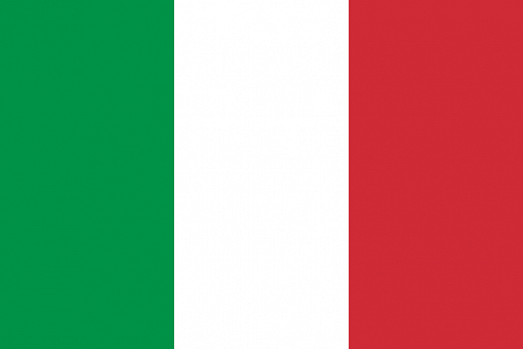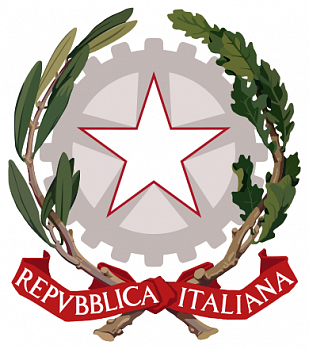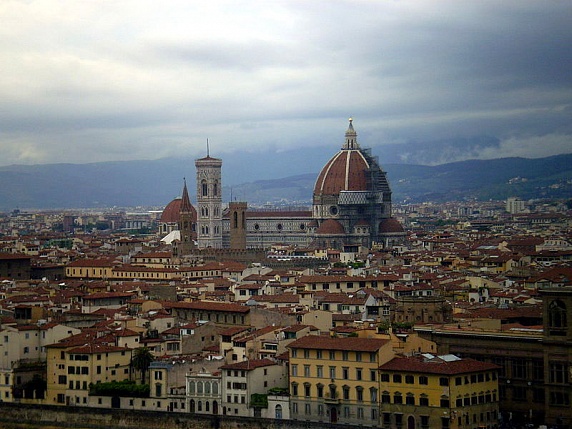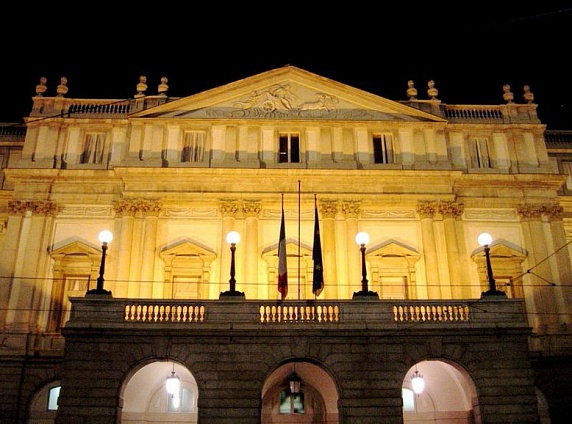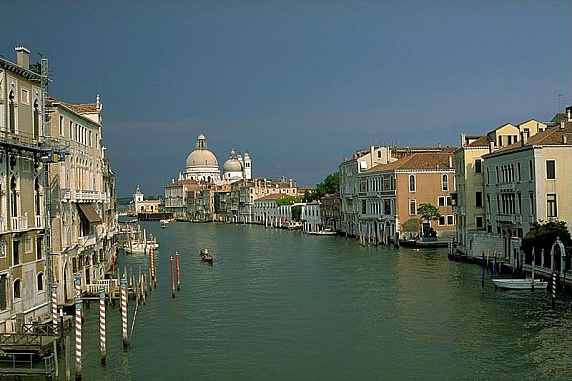 the Republic of Italy
the Republic of Italy
Russian Ambassador to Italy Sergey Razov's interview with the International Life magazine published on November 21, 2019
Question: How seriously do the anti-Russian sanctions supported by Italy and Russia’s reciprocal restrictions affect bilateral cooperation?
Sergey Razov: They do affect it, and, unfortunately, quite seriously. It is difficult to cite the exact quantitative parameters of the damage from the sanctions. But in any case, it amounts to billions of euro of lost profits. According to the data of the Italian farmers’ association, Italy’s exports of agricultural products decreased by more than three billion euros in 2014–2018. Look at the general indicators in Russian-Italian trade. Its record level was reached back in 2013: $53 billion. This year, according to our estimates, it will probably amount to about $25 billion.
The reason behind such a drastic decrease in trade, of course, is not just the anti-Russia sanctions or our reciprocal restrictions, but also a general slowdown of the global economy, as well as the sharp decrease in the global prices for energy carriers, which account for about 80 percent of our exports to Italy, in the past five years. In addition, due to changes in the currency exchange, the economic interest in importing goods from the euro zone has fallen. However, the sanctions that restrict our manufacturers’ access to Western finance and technology and add an element of uncertainty to the prospects of cooperation between Russia and Europe have, of course, played and, unfortunately, continue to play a negative role.
At the same time, over the past five years the sides have to a certain extent adapted to the new conditions of economic cooperation. Of course, we cannot ignore the new reality and carry on with business as usual, but generally, as they say, the dogs bark, but the caravan moves on, although it is certainly slower than we would like it to be.
Question: Italian politicians at various levels speak of the dangers of the anti-Russia sanctions, yet Rome keeps voting for their extension. This runs counter to their statements, doesn’t it?
Sergey Razov: Definitely. On the one hand, my Italian colleagues note the Italian manufacturers’ growing losses from the Russian market being closed for a number of their goods, especially agricultural produce, and they call for the lifting of the sanctions. Yet, the Euro-Atlantic solidarity considerations and bloc discipline in the European Union, NATO and other groups Italy is a member of prevail.
Remember how they tried to incriminate the Soviet Union with applying the Doctrine of Limited Sovereignty to our allies. Now Washington and Brussels are the ones imposing collective decisions that often do not meet the national interests of member countries. As we grimly joked during Soviet times, joining a collective farm is voluntary: we’ll take those who want, we’ll shoot those who don’t. Moreover, the never-ending escalation of sanctions has long lost any connection with the developments in Ukraine and around it. Sanctions have acquired some bad inertia, have become self-sufficient and extended to a wider list of Russia’s pseudo-sins. Our Italian colleagues have consistently opposed the automatic extension of sanctions. We are grateful to them for this and do not doubt the sincerity of their desire to remove restrictions on economic cooperation with Russia.
While you're at it, I would like to note that Italy, like other European countries, is apparently becoming the target of trade restrictions from its overseas strategic partner. I am referring to the nearly three-fold increase in import tariffs for products accounting for a quarter of Italian agricultural exports to the United States, including a number of famous Italian cheeses and other food. Indeed, as Andrey Gromyko said, the one who is right is not the one who is right, but the one who has more rights.
Question: Does it not seem to you that Italy’s role in pan-European affairs has shrunk and the country has become more focused on domestic problems?
Sergey Razov: About its role in pan-European affairs, I would like to remind you that Italy is one of the founding countries of NATO and the European Union. The Russia-NATO Council was established in 2002 during a meeting in Italy and largely at Italy’s initiative. Rome invariably supports resolving international problems by peaceful means through political negotiations, and maintaining and expanding the channels of dialogue, including with Russia. We certainly appreciate this approach, especially considering the statements and actions made by certain European countries, which, if you call a spade a spade, dream of ring-fencing Russia with red flags and imposing their will and decisions.
However, you are right that the leaders and people of Italy are struggling with some complex internal development problems. Its per capita GDP has been flat for the past 15 years; its public debt is 134 percent of GDP, and youth unemployment about 30 percent. Illegal immigration is another major problem affecting public sentiment. With all their inherent cheerfulness and optimism, there is growing discontent among Italians, and there is strong pressure on the authorities. Jokers say, every man is unhappy with how his wife and his government spend money; only he is not afraid to openly criticise the government. So Italy has recently formed its new, 66th, post-war government.
Question: What is Italy’s position regarding the conflict in Libya and to what extent does it coincide with Russia’s approaches?
Sergey Razov: Italy has deep historical and above all economic interests in Libya. Italy’s Eni controls over 45 percent of oil and gas production in that country. Italy was not among the initiators of what NATO countries did to Libya in 2011. But now Italy, like other countries, is facing all the unfavourable effects of those aggressive and short-sighted actions: the collapse of statehood, the unending civil conflict and the flows of migrants from and via Libya heading, among others, to Italy.
Our approaches to the settlement of the crisis coincide in many respects. We call on all the parties to the conflict to cease fire and we support the idea of holding a high-level international meeting of all the countries concerned as well as the convocation of an inclusive intra-Libyan forum.
Let me remind you that Prime Minister Dmitry Medvedev led the Russian delegation at the Palermo Conference on Libya organised by the Italian Government in November 2018. However, as they say, the period of the situation’s improvement is inversely proportional to the period of its aggravation (mending a vase takes much more time than breaking it). Regretfully, so far the situation regarding the Libyan settlement does not give much ground for optimism.
Question: How deep is the rift in Italian society on the issue of accepting immigrants?
Sergey Razov: Migration is an important part of internal political discussions in Italy. Italian society as a whole is very tolerant of foreigners. According to statistics, out of the country’s 60-million population, over 5 million people are foreigners. Representatives of various ethnic, linguistic, and religious groups coexist peacefully here. At the same time, the increase in the number of forced migrants, including refugees, in recent years understandably causes concern among Italians. According to surveys, over 60 percent of the population favours toughening measures to combat illegal migration.
In August 2019, Italy adopted a package of measures on migration and security, and the authorities received the legislative right to prohibit the entry, transit or berthing of ships in Italy’s territorial waters if they violate migration laws. The sanctions for captains of ships transporting illegal migrants were substantially toughened, and a fund was created to return illegal migrants to their countries of origin.
At the same time, the Italian Government favours greater solidarity of its EU partners in the distribution of the migration burden. The proposal involves revising the Dublin mechanism for accepting and distributing refugees, intensifying migration cooperation with Africa, where most migrants come from, strengthening the external perimeter of the European Union, and intensifying efforts against illegal migration. As a result of the measures taken, it was possible to significantly reduce migration flows to Italy. In 2018, about 23,000 immigrants were accepted, which is 80 percent less compared to 2017. In 2019, there is a further reduction.
Question: After the recent government crisis, Matteo Salvini, the League party leader, left the cabinet, and Luigi Di Maio from the Five Star Movement became Minister of Foreign Affairs. How will the new government configuration influence Russian-Italian relations?
Sergey Razov: We are watching closely the intricacy of Italy’s domestic political life. I emphasise – we watch and analyse but in no way try to intervene, unlike the leaders of some other countries, who allow themselves to speak out publicly about their preferences for the composition and leadership of the Italian Government. We deal with the Government that is elected or formed under constitutional democratic procedures.
So far it is still difficult to say what nuances or adjustments to the practical policy with regard to Russia will be made by the new balance of political forces that has emerged in the country. Of course, they may take place. At the same time, we expect the positive continuity of the fundamental principles and the intention to consistently move towards the implementation of bilateral agreements reached earlier.
In general, we proceed from the fact (and, I think, we are not mistaken) that, despite the varied political landscape in Italy, there is a steady consensus among the main political forces and their leaders regarding the importance of maintaining constructive relations with Russia and developing mutually beneficial cooperation. The experience gained over many years of successful cooperation in many areas serves as a kind of safety net against sharp fluctuations in the bilateral dialogue, making it possible to maintain it even in the current, not very favourable climate in relations between Russia and Western countries.
Question: What is the reason for the very frequent changes in the Italian cabinet of ministers? How does this impact your relations with Italian officials?
Sergey Razov: The mood and preferences of the Italian voters can change easily. See for yourself: in March 2018, the Five Star Movement received 33 percent, the League party 17 percent and the Democratic Party 22 percent in the general elections, and just a year later, in May 2019, at the elections to the European Parliament, the results were the opposite: the League received 34 percent and the Five Star Movement 17 percent. This change and range of affections are the voters’ reaction to the tendencies (unfortunately, quite negative) in the economic development of Italy, migration, unemployment and other problems. Well, there is no place without problems (jokers say: show me a person with no problems and I will find traces of a head injury).
In addition to this, there are processes of splitting up and consolidation as well as quite speedy regrouping of the political forces. For example, recently Matteo Renzi, the former Prime Minister of the country and National Secretary of the Democratic Party, left the party he had been heading for several years and founded a new one, Italia Viva (Italy Alive). Almost 40 parliamentarians from the Italian Chamber of Deputies and Senate followed him creating their own deputy groups in the supreme legislative body. Sometimes it is easier for the leaders of political parties to fight their rivals than to satisfy their allies. All of this does not add clarity and, what is more important, accuracy to the analysis of the political development prospects in Italy.
Speaking about our relations with the key officials, parties and movements in Italy, we try to build equidistant or, better to say, equally close relations with the main forces represented in parliament regardless of their political views, but, of course, taking into consideration their willingness to develop ties with Russia. I believe that this approach complies with the long-term interests of Russia. Of course, frequent changes in the configuration of the ruling coalitions and the composition of the government lead to a loss of dynamics in promoting bilateral relations. New people come and study new competences, including the Russian file. Our common task is to shorten this transition period as much as possible, moving forward without any drawn-out breaks.
Question: On October 14, we marked the 25th anniversary of the Treaty of Friendship and Cooperation between the Russian Federation and the Italian Republic of 1994. How are our relations developing now? What are the sensitive issues in the dialogue between Moscow and Rome?
Sergey Razov: The 1994 Treaty is a pivotal interstate document. On its basis, over the past 25 years, working together, we have managed to create a solid portfolio of intergovernmental, interdepartmental and other agreements that cover almost all areas and sectors of bilateral interaction, ranging from the economy, science and high technology to culture, education and healthcare.
Relations between Russia and Italy have always had a preferential character, and they remain such, developing steadily despite some fleeting difficulties.
In the autumn of 2018, Italian Prime Minister Giuseppe Conte made an official visit to Moscow; Russian President Vladimir Putin visited Italy this July. There were also visits to Russia by the speakers of the both Parliament chambers in early 2019, and in both cases they were granted a rare opportunity to speak at plenary meetings of the Federation Council and the State Duma.
We are working to organise another meeting of foreign ministers and defence ministers of both countries in the two plus two format. The Intergovernmental Council for Economic, Industrial, Monetary and Financial Cooperation is operating effectively; we are making arrangements for its regular plenary meeting. There is also the Interdepartmental Working Group on Counteracting New Challenges and Threats, whose participants address the issues of the international anti-terrorism and anti-criminal agenda.
In 2018, Italy hosted the Russian Seasons cultural festival; some 350 various cultural events took place in 75 Italian cities, bringing together millions of Italians. We are also promoting the work of the Forum-Dialogue of Civil Societies with the participation of heads of major Russian and Italian companies, and representatives of educational and cultural organisations. Ramified regional ties, as well as inter-ministry and interdepartmental contacts have been established and keep going.
Naturally, the consolidated approaches of NATO and the European Union, which Italy has to comply with, hamper some of the cooperation areas. I take things as they come: crises come and go (as, I am sure, the Ukrainian crisis will too), while national and state interests remain. I am sure that the interests of Russia and Italy are largely the same.
As for, as you said, sensitive issues in the bilateral dialogue, I would mention the expulsion of two Russian diplomats from Italy in 2018 as part of the collective campaign of Western countries related to the Skripal case. Or the detention of a Russian citizen in Naples last August at the request of the Americans demanding his extradition to the United States. But, as you see, such vicious episodes do not emerge as part of Russia-Italy interaction, but are rather brought in, deliberately, from the outside.
Question: This year marks the 70th anniversary of the founding of the People's Republic of China. You worked as Ambassador of Russia to China for a while. In your opinion, what is China’s influence on European and global policy?
Sergey Razov: If we go from Italian issues to discussing China, I am afraid you won’t have enough room in your publication. So I will keep it brief. In the 70 years since the PRC was established, including the past 45 years, when I, to a varying degree, was involved in relations between our countries, the Chinese have indeed made great developmental progress. Naturally, its influence on global policy has increased as well. China is a permanent member of the UN Security Council, a nuclear power, the world’s most populated country, and a major economic power that is now starting to take centre stage in all key areas of the scientific and technological progress as well. Not everyone in the West feels enthusiastic about this quantum leap. As for Russia, I am confident that the present policy of strengthening our privileged strategic partnership and mutually beneficial cooperation with China is an optimal and reasonable one, with all proper considerations.
Question: According to official data, in the first quarter of the year, mutual trade between Russia and Italy has increased slightly, and Russia’s exports to Italy have grown as well. What is the reason for this?
Sergey Razov: Sadly, the state of affairs in our bilateral trade and economic relations is not satisfying, although, as far as we know, none of the 500 Italian companies operating in the Russian market have curtailed their activities under the sanctions restrictions. In the past several years, Italy has dropped from third or fourth position to 7th this year, on our list of major partners.
Question: What are the largest joint Russian-Italian projects underway now or in the pipeline?
Sergey Razov: Joint efforts are underway in numerous priority areas. Several major projects being implemented include an ammonia plant in the Leningrad Region that has been completed and put into operation by the Italian company Maire Tecnimont, with an investment totaling $1 billion. This company is also taking part in the construction of the Amur gas processing plant, with a large investment as well.
In December 2018, the Yamal LNG was launched with active participation of our Italian partners. As part of the overall financing of $19 billion, the Italian banking group Intesa Sanpaolo provided loans of over €800 million as insurance coverage of European export credit agencies to support Italian equipment supplies. There are many other interesting and ambitious cooperation projects.
Question: Traditionally, Italy is one of Russians’ favourite holiday destinations. What about Italians? Do many of them come to visit Russia?
Sergey Razov: That’s true, Russians traditionally have strong interest in Italy. The country boasts vast cultural and historical heritage, favourable climate, the sea, delicious food, and traditional hospitality towards foreign visitors, including those from Russian. Some 800-900 thousand Russian citizens visit Italy annually, and the vast majority of them have a rewarding experience. The number of Italian tourists visiting Russia is considerably fewer, about 130-150 thousand a year. I should note, however, that Russia’s recently adopted decision to simplify the procedure for issuing electronic visas for trips to St Petersburg has caused great interest there. I believe that following this decision, the flow of Italian tourists to Russia may grow considerably within the next few years.
